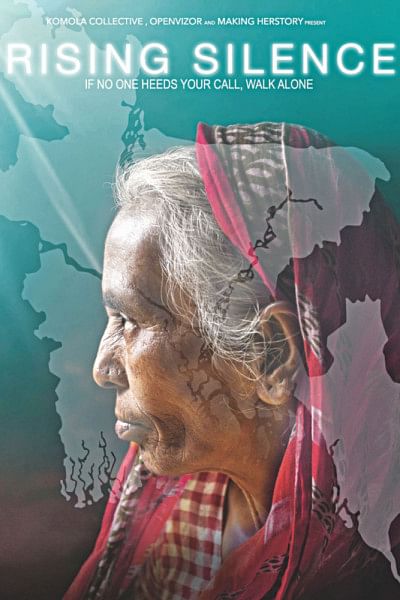Safeguarding stories of THE BIRANGONA WOMEN

Leesa Gazi grew up in Bangladesh and was a member of the leading theatre company Nagorik Natya Sampradaya for more than a decade. She migrated to the UK in 1999 and immediately started working as a TV producer at a community TV channel in London. From 2008, she started working as a professional actor and writer for the stage. Then in 2012, she, along with three of her colleagues, Filiz Ozcan, Sohini Alam and Caitlin Abbott, founded Komola Collective, a theatre and arts company that tells stories from women's perspectives.
Leesa came to know about the Birangona women when she was 17 years old from her father, Md Lutfur Rahman, who joined the Liberation War of Bangladesh and worked as Zonal Administrator in Tura in Sector 11. She and her siblings grew up hearing harrowing and heroic stories of the war – but the particular story about the Birangona women always stayed with Leesa.
In 2010, Ishrat Nishat, a theatre personality and dear friend of Leesa, took her to meet 21 Birangona women in Sirajganj. Leesa went to see them with a small camera crew to record their accounts with their permission. Around a year later, Bahaton, one of the Birangona women that Leesa had met, passed away, and this shook her to the core. “Birangona Bahaton's death pushed me to return to Bangladesh with Komola Collective to develop an R&D theatrical piece based on their stories,” explains Leesa. “The Offie nominated play, Birangona: Women of War, interwove film footage of these women individually.” After watching the play, the women wanted their stories to reach people around the globe. Komola Collective completed the UK and Bangladesh tours of the play in 2014, written by Samina Luthfa and Leesa Gazi and directed by Filiz Ozcan. “During the touring of the play, the Birangona women we met and knew were leaving us one by one. I realised that when a Birangona woman dies, her story dies with her,” says Leesa. “I felt the urgency to save their stories as a more permanent record. So, I came up with the idea of making a documentary film around them. My intention is to safeguard the stories of the Birangona women so that they are remembered across countries and time with love and pride.”
The film, titled, Rising Silence, is directed by Leesa Gazi, executive produced by Openvizor, produced by Komola Collective and co-produced by Making Herstory. It is also supported by Manusher Jonno Foundation and The Osiris Group. Sohini Alam and Oliver Weeks from the British fusion band, Khiyo, directed the soundtrack of the film, which features a song by Moushumi Bhowmik.
Rising Silence is a feature-length documentary film that follows the presenter as she travels back to her homeland of Bangladesh in a quest to meet the survivors of the 1971 mass rapes. The presenter takes the audience on a personal journey through her encounters with nine Birangona women. She and the crew live with each of the women and their families for a short period of time, sharing their life experiences and their hopes. The film is about the strength of these women who have picked themselves up after facing unspeakably brutal physical and emotional abuse. It honours their insurmountable courage and brings to the forefront a crucial part of Bangladesh's history that has been widely ignored for far too long. The crew travelled through Thakurgaon, Sirajganj, Shohagpur, Khagrachhori, Dhaka, and Kolkata during the making of the film, which will be screened in the Dhaka International Film Festival on January 12 at 5 pm at the Bangladesh National Museum and on January 18 at 7 pm at the National Public Library.
Find the trailers of Rising Silence on Komola Collective's YouTube channel.

 For all latest news, follow The Daily Star's Google News channel.
For all latest news, follow The Daily Star's Google News channel. 



Comments